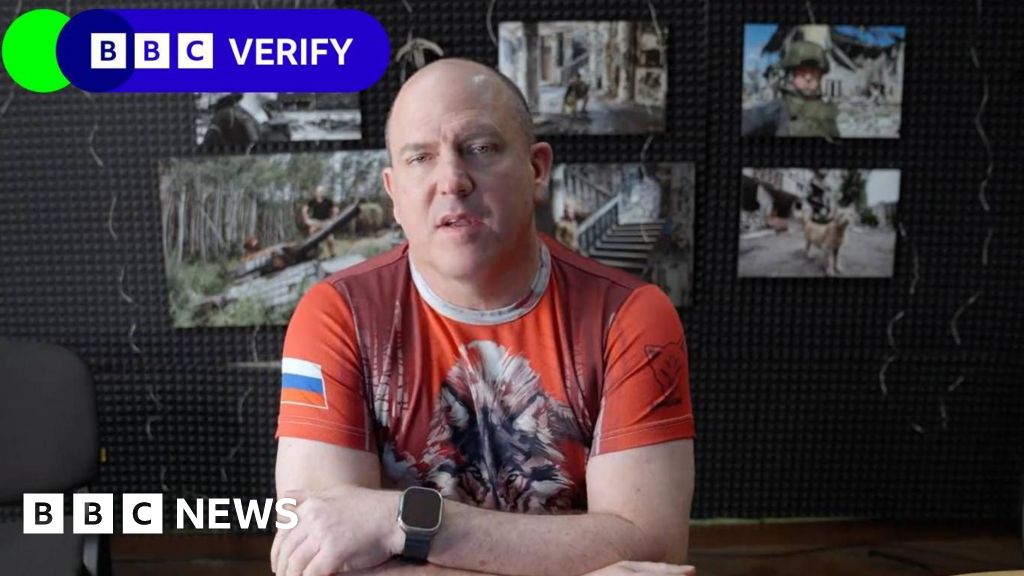- cross-posted to:
- [email protected]
- cross-posted to:
- [email protected]
A story which originated on DC Weekly, claiming that Ukrainian officials bought yachts with US military aid, was repeated by several members of Congress, including Senator J D Vance and Representative Marjorie Taylor Greene.
Mr Vance is one of a handful of politicians mentioned as a potential vice-presidential running mate for Donald Trump.
This is the best summary I could come up with:
A former Florida police officer who relocated to Moscow is one of the key figures behind it.The following would have been a bombshell report - if it were true.Olena Zelenska, the first lady of Ukraine, allegedly bought a rare Bugatti Tourbillon sports car for 4.5m euros ($4.8m; £3.8m) while visiting Paris for D-Day commemorations in June.
Our latest investigation, carried out over more than six months and involving the examination of hundreds of articles across dozens of websites, found that the operation has a new target - American voters.Dozens of bogus stories tracked by the BBC appear aimed at influencing US voters and sowing distrust ahead of November’s election.
Some have been roundly ignored but others have been shared by influencers and members of the US Congress.The story of the Bugatti hit many of the top themes of the operation – Ukrainian corruption, US aid spending, and the inner workings of French high society.Another fake which went viral earlier this year was more directly aimed at American politics.It was published on a website called The Houston Post – one of dozens of sites with American-sounding names which are in reality run from Moscow - and alleged that the FBI illegally wiretapped Donald Trump’s Florida resort.It played neatly into Trump’s allegations that the legal system is unfairly stacked against him, that there is a conspiracy to thwart his campaign, and that his opponents are using dirty tricks to undermine him.
Casual browsers could easily come away with the impression that the sites are thriving sources of legitimate news about politics and hot-button social issues.However, interspersed within this tsunami of content is the real meat of the operation - fake stories aimed increasingly at American audiences.The stories often blend American and Ukrainian political issues - for instance one claimed that a worker for a Ukrainian propaganda outfit was dismayed to find that she was assigned tasks designed to knock down Donald Trump and bolster President Biden.Another report invented a New York shopping trip made by Ukraine’s first lady, and alleged she was racist towards staff at a jewellery store.The BBC has found that forged documents and fake YouTube videos were used to bolster both false stories.Some of the fakes break out and get high rates of engagement on social media, said Clement Briens, senior threat intelligence analyst at cybersecurity company Recorded Future.His company says that 120 websites were registered by the operation - which it calls CopyCop - over just three days in May.
The FBI raided his apartment in 2016, at which point he fled to Moscow.He has since written books, reported from occupied parts of Ukraine and has made appearances on Russian think tank panels, at military events and on a TV station owned by Russia’s ministry of defence.In text message conversations with the BBC, Mr Dougan has flatly denied being involved with the websites.
Mr Dougan is most likely not the only person working on the influence operation and who funds it remains unclear.“I think it’s important not to overplay his role in this campaign," said Darren Linvill, co-director of Clemson University’s Media Forensic Hub, which has been tracking the network.
The original article contains 2,339 words, the summary contains 522 words. Saved 78%. I’m a bot and I’m open source!
Republicans just eat up Russian propaganda. In fact Americans generally eat up any propaganda offered.
That is an interesting comment coming from someone who is a heavy poster in a political community.




